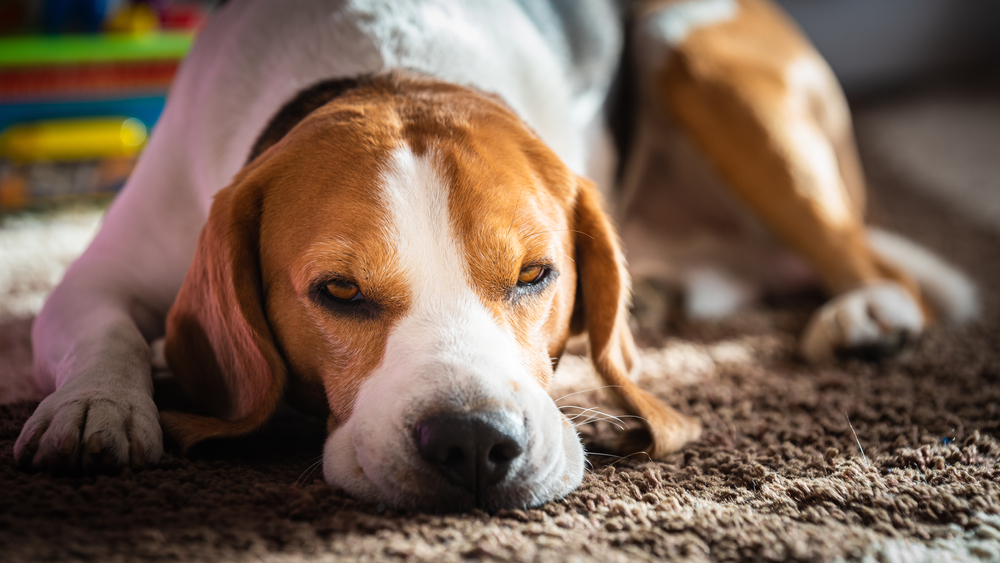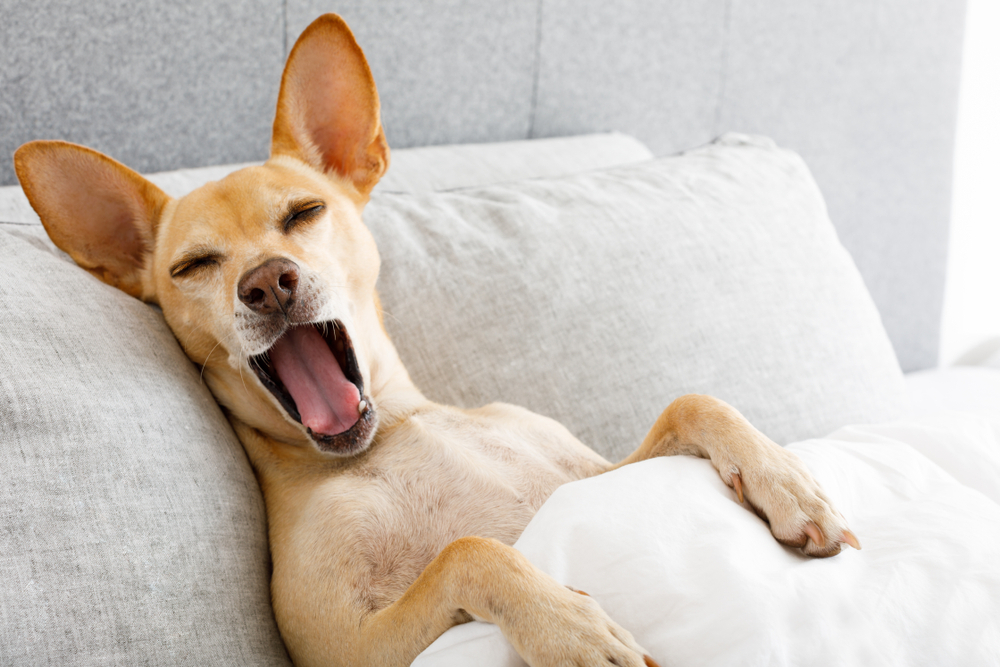[ad_1]
As involved pet mother and father, we at all times fear about our canine’ security and luxury, whether or not they’re enjoying, consuming, or just sleeping of their beds. Goals have an effect on our canine simply as they do us, with outward expressions like twitching, snorting, and barking giving us a glimpse into their psychological state.
Should you’ve ever questioned what goes on behind the scenes, we’ll discover why canine bark of their sleep and the way dreaming can affect it.


Why Does My Dog Bark in His Sleep?
Canine often bark of their sleep as a result of they’re dreaming. You may additionally see canine twitching, growling, whining, or “working” in place, as they react to vivid stimuli of their goals in the same option to how they might in actual life. As with people, canine undergo fast eye motion (REM) and non-REM phases of sleep however expertise them in shorter lengths than we do due to their differing sleep patterns.
REM phases of deeper sleep are when a dog goals, and we’re most definitely to see manifestations like barking. For a medium-sized dog, the primary REM dream section begins roughly 20 minutes after they go to sleep.


A Dog’s Sleeping Sample
Though canine sleep round 11–12 hours per day, with REM sleep accounting for almost 3 hours, they achieve this polyphasically in a number of blocks all through the day. A typical sleeping interval solely lasts for about 45 minutes. Cycles of non-REM and REM sleep are round 20 minutes.
Non-REM intervals final roughly 12 minutes, and every REM interval solely lasts roughly six. In consequence, canine will typically solely bark briefly spurts. The size of every cycle can fluctuate by breed, with some bigger canine having wider gaps between REM intervals (60–90 minutes) and longer goals. Against this, smaller canine might enter REM states as rapidly as as soon as each 10 minutes.
REM Sleep Habits Dysfunction
Sleep problems are unusual in canine however a situation referred to as REM sleep conduct dysfunction (RBD) has been described which may trigger a dog to bark of their sleep. Often, muscle mass don’t activate throughout dream states as they enter a short lived paralysis referred to as muscle atonia. With RBD, motor neurons don’t cease producing motion potential, permitting a dog’s actions to manifest in actual life.
Canine with this dysfunction exhibit irregular, complicated, and generally violent motor conduct throughout REM sleep. They might have violent limb actions, howl, chew, bark, growl, or chew, displaying these habits throughout daytime naps and nighttime sleeping intervals.
Canine affected by REM sleep conduct dysfunction might endure from underlying situations, comparable to tetanus or different neurological illnesses. Some might also have a genetic susceptibility. In contrast to people, who usually develop the dysfunction as they age, canine often exhibit RBD indicators earlier than their first birthday. Treating the difficulty with antidepressants or anti-seizure drugs is commonly efficient in decreasing the indicators.


What Do Canine Dream About?
Whereas canine can’t describe their goals verbally, it’s thought that they dream in the same option to us about their experiences. They seemingly relive components of their day, replaying occasions and reacting to them of their goals as they might in actual life. Searching canine would possibly dream about chasing prey, and Collies might rerun earlier herding routes, with optimistic and damaging experiences influencing their responses.
Ought to I Wake My Dog If He Barks in His Sleep?
Though your dog could appear distressed, you shouldn’t wake him when he barks in his sleep. Barking and different vocalizations aren’t usually a hazard, and you might put your dog and your self extra in danger by making an attempt to awaken them. Canine can grow to be confused when woken all of a sudden, doubtlessly inflicting them to lash out aggressively and damage you unintentionally.
Usually, it’s finest to let your dog have interaction in his behaviors in a protected area. If it turns into bothersome, you’ll be able to attempt setting his mattress in a extra remoted space the place the noise gained’t be as irritating to different members of the family.


Last Ideas
By itself, a dog’s behavior of barking in his sleep is never a trigger for concern. He’s seemingly merely performing out what he’s imagining, drawing on his reminiscences and every day experiences to formulate fantasies that may have him chasing, enjoying, searching, and, in lots of instances, vocalizing. Until your dog’s sleeping habits or behaviors throughout his waking hours have modified, this is only one of many distinctive quirks that make life with pets memorable and enjoyable.
Featured Picture Credit score: eva_blanco, Shutterstock
[ad_2]
Nicole Cosgrove
2024-08-12 18:26:18
Source :https://www.dogster.com/dog-behavior/why-does-my-dog-bark-in-his-sleep

















